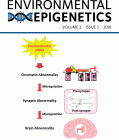
Environmental Epigenetics
metrics 2024
Decoding the Impact of Environment on Genetic Health
Introduction
Environmental Epigenetics, published by Oxford University Press, is a leading open access journal dedicated to advancing the understanding of the epigenetic mechanisms that underpin environmental influences on health and disease. With an ISSN of 2058-5888 and established as an open access platform since 2015, this journal serves as a vital resource for researchers in the fields of genetics, environmental science, and health, offering insights from multidisciplinary perspectives. The journal has gained notable recognition in the academic community, reflected by its impressive Scopus rankings and its classification in the second quartile (Q2) for Genetics and other related disciplines as of 2023. It aims to foster innovative research that bridges laboratory findings and real-world environmental issues, making it an indispensable tool for professionals and students pursuing knowledge at the intersection of genetics, environmental science, and public health. With its commitment to disseminating valuable research findings freely, Environmental Epigenetics stands out as an essential publication for those aiming to understand the significant impacts of environmental factors on genetic expression.
Metrics 2024
 0.81
0.81 4.80
4.80 4.30
4.30 29
29Metrics History
Rank 2024
Scopus
IF (Web Of Science)
JCI (Web Of Science)
Quartile History
Similar Journals

AGING CELL
Transforming Understanding of Aging Through Open AccessAGING CELL is a premier peer-reviewed journal published by Wiley, specializing in the rapidly evolving field of aging research and cell biology. Established in 2002 and enjoying an impressive track record as evidenced by its Q1 ranking in both Aging and Cell Biology categories for 2023, the journal has become a vital resource for researchers and professionals alike. With a significant impact factor highlighting its scholarly influence, AGING CELL offers an open access model since 2014, ensuring that groundbreaking research is accessible to the global community. The journal covers a wide array of topics related to the mechanisms of aging at the cellular and molecular levels, making it essential reading for anyone invested in understanding the complexities of aging processes and their implications for health and disease. With a broad international readership based in the United Kingdom and beyond, AGING CELL is dedicated to disseminating high-quality research that impacts scientific understanding and fosters advances in the field.
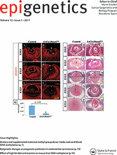
Epigenetics
Illuminating the Pathway to Epigenetic BreakthroughsEpigenetics, published by Taylor & Francis Inc, is a leading journal in the fields of Cancer Research, Medicine (miscellaneous), and Molecular Biology. With an ISSN of 1559-2294 and an E-ISSN of 1559-2308, this journal has been paving the way for groundbreaking research since its inception in 2006, and it continues to play a crucial role in advancing our understanding of epigenetic mechanisms and their implications in health and disease. The journal is highly regarded, ranking in the Q1 category for Medicine and Q2 for both Cancer Research and Molecular Biology according to the 2023 category quartiles. Researchers and professionals in the field will find invaluable insights and innovative studies within its pages, making it an essential resource for those engaged in cutting-edge research. Although the journal is not open access, it encourages a comprehensive understanding through high-quality peer-reviewed content. With its creative exploration of the epigenetic landscape, Epigenetics serves as a vital platform for the sharing of knowledge that could lead to breakthroughs in treatments and therapies.

JOURNAL OF MOLECULAR MEDICINE-JMM
Unveiling the Molecular Mysteries of Health and Disease.JOURNAL OF MOLECULAR MEDICINE (JMM) is a premier publication dedicated to advancing the field of molecular medicine, encompassing critical areas such as drug discovery, genetics, and biochemistry. Published by Springer Heidelberg in Germany, this influential journal has established its significance within the academic community, achieving an impressive Q1 ranking across multiple categories as of 2023, including Drug Discovery, Clinical Genetics, and Molecular Medicine. With a focus on publishing high-quality research and novel insights, JMM appeals to a diverse audience of researchers, professionals, and students passionate about the molecular underpinnings of health and disease. The journal, which has seen a convergence of relevant research spanning from 1976 to 2024, is instrumental in showcasing groundbreaking studies that push the boundaries of knowledge in molecular therapeutics and biomedical science. While it does not offer open access, the rigor of its peer-reviewed content ensures that each publication is a valuable addition to the scientific discourse surrounding molecular medicine. For comprehensive studies and reviews that highlight the intersection of molecular biology and clinical application, look no further than JOURNAL OF MOLECULAR MEDICINE.

BIOCHEMICAL GENETICS
Innovating the Understanding of Genetic MechanismsBIOCHEMICAL GENETICS, published by Springer/Plenum Publishers, is a prominent journal in the fields of biochemistry, genetics, and molecular biology, with a substantial impact on the scientific community since its inception in 1967. The journal holds a significant position within various academic quartiles, ranking Q2 in Ecology, Evolution, Behavior and Systematics, and Q3 in Biochemistry, Genetics, and Medicine (miscellaneous), among others, demonstrating its diverse and interdisciplinary reach. With an ISSN of 0006-2928 and an E-ISSN of 1573-4927, it is recognized for contributing critical research insights and methodologies that drive the fields of biochemical genetics forward. Although it is not an Open Access journal, it provides vital access options and resources for researchers globally, facilitating the dissemination of knowledge across institutions. Positioned within the competitive landscape of Scopus rankings, it maintains respectable standings across its focused areas, making it an invaluable resource for researchers, professionals, and students seeking to deepen their understanding of genetic mechanisms and biochemical processes.

Advances in Gerontology
Advancing Knowledge in GerontologyAdvances in Gerontology is a pivotal academic journal dedicated to the field of gerontology, published by PLEIADES PUBLISHING INC. With its ISSN 2079-0570 and E-ISSN 2079-0589, this journal serves as an essential platform for researchers, healthcare professionals, and students focused on aging and related health issues. Although currently not an open-access journal, it aspires to enrich the scholarly community by disseminating high-quality research from 2011 through 2024. The journal is recognized in the lower quartile of its category, ranking Q4 in both Geriatrics and Gerontology, reflecting its commitment to addressing emerging topics in the aging population despite its lower visibility in the competitive landscape. As it continues to explore critical areas in gerontology, Advances in Gerontology invites contributions that advance knowledge, foster understanding, and inform practices within this essential field of study.

Cell Discovery
Elevating Knowledge in Cellular and Molecular BiologyCell Discovery, published by SPRINGERNATURE, is a premier open access journal in the dynamic fields of Biochemistry, Cell Biology, Genetics, and Molecular Biology. Since its inception in 2015, this journal has established itself as a key platform for disseminating high-impact research and is recognized with a Q1 ranking across all its core categories for the year 2023. With its remarkable Scopus rankings—7th in Genetics, 9th in Biochemistry, 13th in Molecular Biology, and 15th in Cell Biology—Cell Discovery positions itself among the elite journals in life sciences, showcasing the most innovative breakthroughs and comprehensive reviews. Based in the United Kingdom, this journal operates under an open access model, ensuring that groundbreaking discoveries are readily available to researchers, professionals, and students around the globe. With a commitment to advancing scientific knowledge, Cell Discovery welcomes contributions that push the frontiers of our understanding in cellular and genetic sciences.
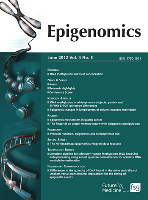
Epigenomics
Exploring the Genetic Landscape of Cancer.Epigenomics is a leading journal in the realms of Cancer Research and Genetics, published by Future Medicine Ltd in the United Kingdom. With an ISSN of 1750-1911 and an E-ISSN of 1750-192X, the journal has been an integral part of the scientific community since its inception in 2009, and is set to converge its impactful research publications through 2024. The journal occupies a significant position in its category quartiles as evidenced by its ranking—Q3 in Cancer Research and Q2 in Genetics as of 2023. With Scopus rankings of #138/347 in Genetics and #113/230 in Cancer Research, it demonstrates scholarly excellence and is recognized for its contributions to understanding the role of epigenetic modifications in health and disease. While Epigenomics operates under traditional subscription models, it remains a vital resource for researchers, professionals, and students eager to explore the complex interplay between genes and the epigenome. The journal's innovative approach to epigenetics and its impact on cancer research makes it essential reading for those at the forefront of biomedical research.
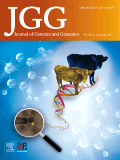
Journal of Genetics and Genomics
Fostering Dialogue on Genetic DiscoveriesThe Journal of Genetics and Genomics, published by SCIENCE PRESS in China, stands as a significant contributor to the fields of Genetics and Molecular Biology. With an ISSN of 1673-8527 and E-ISSN 1873-5533, this esteemed journal has achieved a remarkable reputation, holding a prestigious Q1 ranking in both Genetics and Molecular Biology as of 2023. This journal not only showcases pioneering research but also fosters vital discussions on contemporary challenges and innovations within genomic sciences. As part of its commitment to facilitating scientific advancement, the journal encompasses a range of research articles, reviews, and short communications, all aiming to illuminate the complexities of genetic structures and functions from 2007 to 2024. Researchers, professionals, and students alike are encouraged to engage with its content, which ranks favorably in Scopus—placing it within the top tier of its categories. Join the community of academic excellence and explore the latest findings that shape our understanding of genomics.
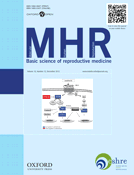
MOLECULAR HUMAN REPRODUCTION
Transforming Reproductive Health through Rigorous ResearchMOLECULAR HUMAN REPRODUCTION, published by Oxford University Press, is a pivotal journal dedicated to advancing the field of reproductive biology. Since its inception in 1995, the journal has been recognized for its rigorous peer-reviewed research and substantial contributions to the understanding of molecular mechanisms underlying human reproduction. With an impressive impact factor and ranked within the top tiers (Q1 and Q2) across diverse categories including Embryology, Obstetrics and Gynecology, and Reproductive Medicine, it stands as an essential resource for researchers, healthcare professionals, and students alike. The journal aims to publish cutting-edge research that explores the complexities of human reproduction at the molecular and cellular levels, fostering a deeper understanding that can be translated into clinical practice. Although it currently operates under a subscription model, the valuable insights and groundbreaking findings featured within its pages continue to influence the trajectory of reproductive health research globally. Located in the heart of Oxford, United Kingdom, the journal remains committed to addressing vital challenges in the field and promoting innovative scientific dialogue.

Clinical Epigenetics
Transforming Clinical Practice through Epigenetic DiscoveriesClinical Epigenetics is a pioneering open-access journal published by BMC, dedicated to advancing the field of epigenetics and its critical implications in clinical and translational research. Established in 2011, the journal has become an authoritative resource in the realms of developmental biology, genetics, and molecular biology, as evidenced by its impressive 2023 Scopus categorization as a Q1 journal in multiple domains including clinical genetics. With a robust impact factor and rankings that place it among the top quartiles in its fields—Rank #13 in Clinical Genetics and #14 in Developmental Biology—Clinical Epigenetics serves as an essential platform for researchers, professionals, and students alike, encouraging the dissemination of high-quality research findings. Operating from its United Kingdom headquarters, this journal not only contributes to scholarly dialogue across the globe but also supports unrestricted access to vital findings that push the boundaries of our understanding of epigenetic mechanisms and their clinical applications.